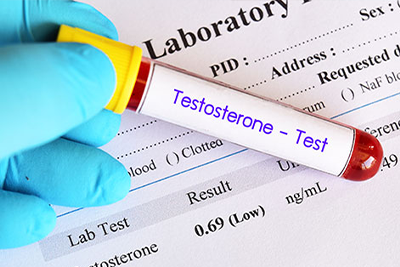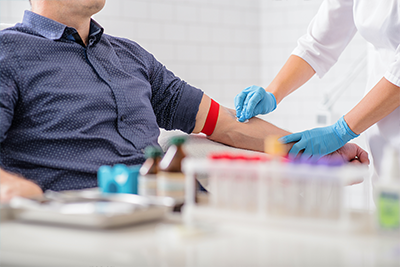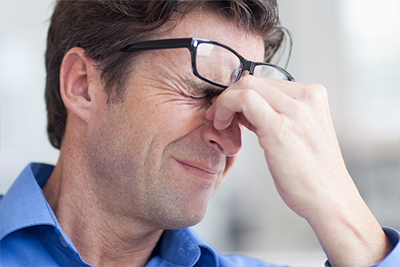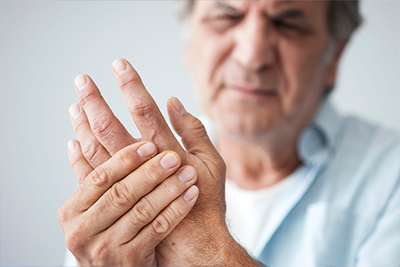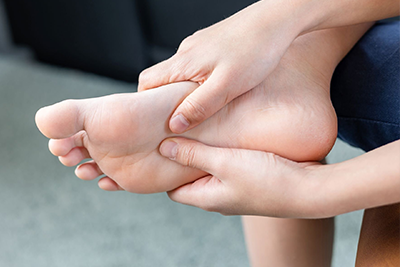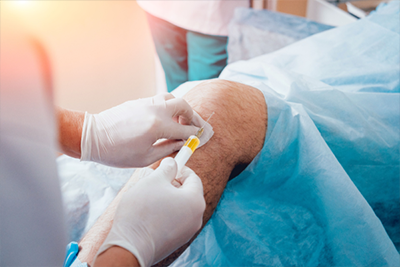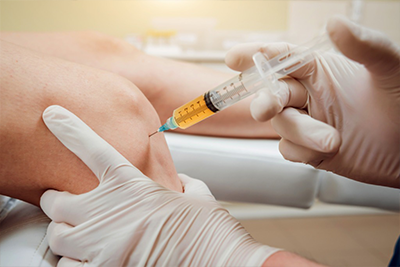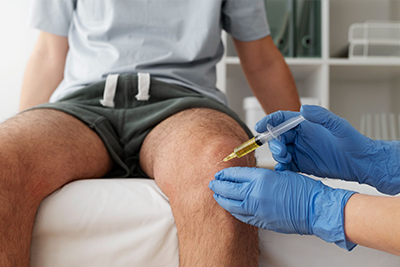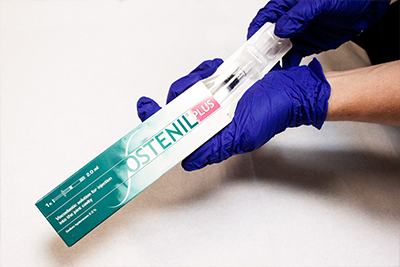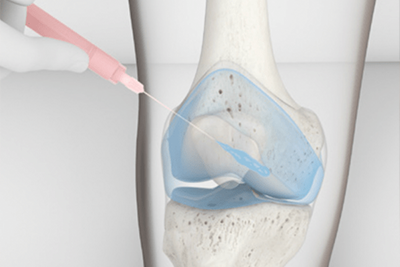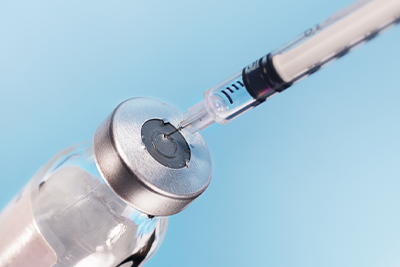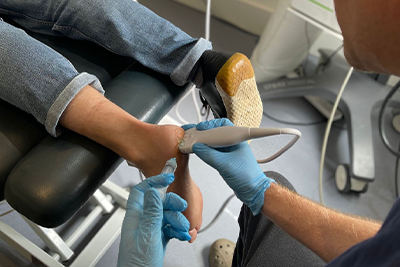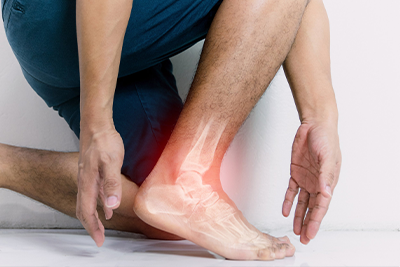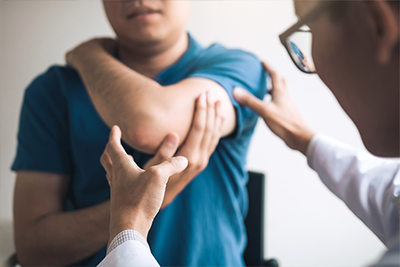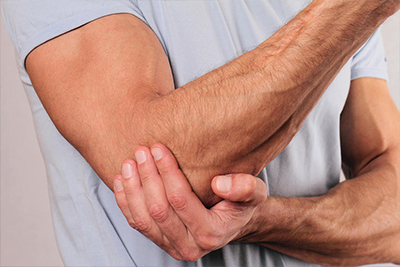A topic that often emerges when we discuss men’s health is low testosterone – a condition that can significantly impact a man’s overall well-being. Testosterone, primarily produced in men’s testicles, is crucial in developing male growth and masculine characteristics. It’s not just about muscle strength or the deep timbre of a voice; testosterone affects various aspects of health, including bone density, fat distribution, muscle strength, red blood cell production, and mood stability.
However, testosterone levels naturally decline as men age, and sometimes, they may plummet lower than what’s considered healthy. This condition, commonly known as low testosterone or hypogonadism, can lead to many health complications if left untreated.
Understanding low testosterone, recognising the signs and symptoms, and seeking timely medical intervention can significantly affect one’s health trajectory. This is particularly relevant in the UK, where an estimated one in twenty men over 50 are thought to suffer from this condition. Despite these statistics, many remain unaware or misinformed about the issue.
We aim to illuminate the reality of low testosterone, exploring its signs, symptoms, and the importance of addressing this often-overlooked aspect of men’s health in the UK. Armed with this knowledge, we hope to empower men to take proactive steps towards better health and improved quality of life.
Understanding Testosterone
Testosterone is a crucial hormone in men’s health that serves various functions. It is primarily produced in the testicles and plays a pivotal role in the male body, influencing everything from physical appearance to sexual development.
Testosterone is a driving force behind the physical changes that occur during puberty, such as the growth of facial and body hair, deepening of the voice, and increased muscle mass and strength. However, its role extends beyond these outward manifestations. Testosterone is vital for maintaining bone density, distributing fat in the body, and even producing red blood cells. Moreover, it is central to a man’s sexual and reproductive health, governing libido and sperm production.
In terms of normal testosterone levels, these can vary depending on various factors like age, time of day, and individual health conditions. Generally, a normal range for testosterone levels in men is about 270 to 1070 ng/dL, with an average level of 679 ng/dL. It’s important to note that these figures can differ slightly based on the lab that analyses the blood sample.
As men age, it’s natural for testosterone levels to decline gradually. This typically begins around age 30 to 40 and continues at a rate of about 1% per year. This age-related decrease is a normal part of ageing. However, in some men, testosterone levels can drop significantly lower than the typical range associated with ageing, leading to symptoms of low testosterone or hypogonadism.
The age-related testosterone decline often goes unnoticed as it occurs gradually over several years. Many men attribute the accompanying symptoms to general ageing, not realising they could be dealing with low testosterone levels. While some decline in testosterone is natural and expected, a drastic drop can lead to various health issues, underscoring the need for awareness and understanding.
Prevalence of Low Testosterone in the UK
It’s estimated that about 1 in 20 men over 50 in the UK have low testosterone, which rises with age. This prevalence underscores that low testosterone is not an isolated issue but a significant concern in men’s health across the UK. It’s also worth noting that these statistics likely underestimate the true prevalence. Many men with low testosterone may not seek medical attention due to a lack of awareness or perceived stigma associated with the condition.
Age-related testosterone deficiency, often late-onset hypogonadism, is a specific subset of low testosterone. It’s characterised by a decline in testosterone levels associated with ageing and related symptoms such as fatigue, depression, cognitive decline, reduced sexual desire, and erectile dysfunction.
In the UK, age-related testosterone deficiency is a growing concern. The number of men in the older age brackets is increasing due to longer life expectancy, contributing to a rise in cases of age-related testosterone deficiency. However, it’s crucial to distinguish between the average age-related decline in testosterone levels and the more drastic drop associated with hypogonadism. This distinction helps in identifying those who may benefit from medical intervention.
Recognising the Signs and Symptoms of Low Testosterone
The effects of low testosterone can permeate various aspects of a man’s life, manifesting in both physical and mental symptoms. By recognising these signs, one can seek help early and prevent potential complications.
Physical Symptoms of Low Testosterone
Low testosterone can impact a man’s body in numerous ways, leading to several potential physical signs. These can include:
- Reduced muscle mass and strength: Testosterone plays a significant role in muscle development. As such, lower levels may lead to a decrease in both muscle mass and strength.
- Increased body fat: Men with low testosterone might notice an increase in body fat, particularly around the waist. This is due to the role testosterone plays in fat distribution and metabolism.
- Reduced bone density: Testosterone is crucial for maintaining bone density. Lower levels could lead to a higher risk of fragile or brittle bones, a condition known as osteoporosis.
- Hair loss: Testosterone plays a role in hair production. While balding is a natural part of ageing for many men, those with low testosterone might experience hair loss on their body and face as well.
- Hot flashes and sweats: Though less common, some men with low testosterone experience hot flashes similar to those experienced by women during menopause.
- Fatigue: Constant, unexplained fatigue or a lack of energy could be a sign of low testosterone.
- Erectile dysfunction and low libido: Low testosterone can lead to difficulties achieving and maintaining an erection, as well as reduced sexual desire.
Emotional and Mental Symptoms of Low Testosterone
Testosterone also significantly impacts the brain and can influence mood and mental capacity. As a result, low levels can lead to several emotional and mental symptoms, such as:
- Mood swings and irritability: Men with low testosterone might experience unexplained mood swings, irritability, or increased aggression.
- Depression and anxiety: Low testosterone can be associated with a higher incidence of depression and anxiety.
- Cognitive difficulties: Some men might experience difficulties with memory and concentration.
- Reduced confidence and motivation: Low testosterone can impact one’s sense of self-confidence and motivation.
Identifying the signs and symptoms of low testosterone can help men realise when it’s time to seek medical advice. You must contact a healthcare provider if you or someone you know is experiencing these symptoms. They can help diagnose whether low testosterone is the cause and suggest appropriate treatment options. Remember, experiencing these symptoms doesn’t necessarily mean you have low testosterone – they could be due to other underlying health issues. However, they should not be ignored.
Causes of Low Testosterone
Low testosterone levels can be attributed to many factors ranging from natural ageing processes to specific health conditions and lifestyle choices.
Age-Related Causes
As mentioned earlier, testosterone levels naturally decline as men age, beginning around 30 to 40. This gradual decline is a part of the normal ageing process. However, this decline can be more severe sometimes, resulting in low testosterone levels that may cause significant health issues. This condition, often called late-onset hypogonadism, can lead to the physical and mental symptoms discussed in the previous section.
Health-Related Causes
Several health conditions can contribute to low testosterone levels. These include:
- Hypogonadism: This condition is characterised by the body’s inability to produce sufficient testosterone due to issues in the testicles or the pituitary gland.
- Injury or infection: Any damage to the testicles, where testosterone is produced, can affect testosterone levels.
- Hormonal disorders: Conditions that affect the hypothalamus and pituitary gland, such as pituitary tumours or high levels of prolactin, can disrupt testosterone production.
- Chronic diseases: Conditions like kidney disease, liver disease, and HIV/AIDS can lead to low testosterone levels.
- Medications: Certain drugs, such as opioids and steroids, can impact testosterone production.
Lifestyle-Related Causes
Besides ageing and health conditions, lifestyle factors can also affect testosterone levels. These include:
- Obesity: There’s a strong link between obesity and low testosterone. Fat cells metabolise testosterone into oestrogen, lowering the overall levels of testosterone.
- Poor diet and lack of exercise: A diet lacking essential nutrients and a sedentary lifestyle can negatively impact testosterone levels.
- Sleep deprivation: Quality sleep is crucial for hormone production, including testosterone. Chronic sleep deprivation can lead to lower testosterone levels.
- Alcohol and drug use: Excessive alcohol and illicit drug use can affect testosterone production.
- Stress: Chronic stress can negatively impact hormone balance, including testosterone.
NICE Guidelines and Treatment Options for Low Testosterone in the UK
In the UK, the National Institute for Health and Care Excellence (NICE) provides guidelines to help healthcare professionals deliver the best possible care.
The NICE guidelines recommend testosterone replacement therapy (TRT) for men with persistent symptoms of testosterone deficiency and conclusively low testosterone levels confirmed by laboratory tests. These symptoms should be associated with significant distress and impact on quality of life. TRT aims to alleviate symptoms and restore testosterone levels to the normal range.
NICE also advises that TRT should only be started after explaining the potential risks and benefits to the patient. This includes the uncertain long-term safety of TRT, particularly regarding cardiovascular risk, prostate health, and red blood cell production.
Before starting TRT, men should undergo a thorough examination for prostate disease, including prostate-specific antigen (PSA) testing. Once on TRT, patients should regularly monitor their testosterone levels, haematocrit, and PSA, particularly during the first year of treatment.
Other Treatment Options and Lifestyle Changes
In addition to TRT, other treatments are available depending on the cause of low testosterone. These might include treating the underlying health condition causing low testosterone or adjusting any medication affecting testosterone levels.
Lifestyle changes can also play a significant role in managing low testosterone. These may include maintaining a healthy weight, incorporating regular exercise into your routine, eating a balanced diet, ensuring sufficient sleep, reducing alcohol intake, avoiding illicit substances, and managing stress.
Living with Low Testosterone
To further illustrate the impact of low testosterone and the effectiveness of various treatment strategies, it can be helpful to look at personal experiences. These stories are powerful reminders that men dealing with low testosterone are not alone and that there are successful ways to manage this condition.
Personal Stories
James, a 52-year-old man from Crawley. He noticed that he was constantly tired and lacked the energy he used to have. He was also experiencing mood swings and had lost interest in activities he previously enjoyed, including intimacy with his partner. After discussing these symptoms with his doctor and undergoing blood tests, he was diagnosed with low testosterone.
Or David, a 45-year-old man from Ashford. Despite maintaining his usual exercise routine and diet, he struggled with weight gain and muscle loss. He was also experiencing difficulties with memory and concentration, affecting his work performance. After some research, David recognised these as potential symptoms of low testosterone, prompting him to seek medical advice. Subsequent tests confirmed his suspicion.
Treatment Strategies
Upon receiving his diagnosis, James started testosterone replacement therapy. He found that, over time, his energy levels improved, his mood stabilised, and his interest in his usual activities returned. James also made lifestyle changes, such as adopting a healthier diet and incorporating more exercise into his daily routine, which he believes have further improved his well-being.
David reported significant improvements in his memory and concentration, decreased weight and increased muscle mass. On the other hand, David found that his low testosterone levels were partly due to high-stress levels and poor sleep. Alongside starting on TRT, he worked on a stress management plan and improved his sleep hygiene.
Lastly
Recognising and treating low testosterone is crucial to maintaining optimal men’s health. From understanding the function of testosterone in the male body to recognising the signs and symptoms of low testosterone, every piece of knowledge contributes to better health outcomes.
If you or someone you know is experiencing symptoms of low testosterone, it’s important to remember that help is available. Whether through lifestyle changes, medical treatments, or a combination, low testosterone is manageable.
Engaging in open, honest discussions about your health concerns, including those related to low testosterone is essential. Don’t hesitate to speak with your healthcare provider about your symptoms. Remember, your experiences are valid, and your health matters.
Low testosterone can impact many aspects of a man’s life, but with awareness, understanding, and the right help, it doesn’t have to define it. By recognising the signs of low testosterone and seeking appropriate treatment, men can continue to lead fulfilling, healthy lives. Stay informed about men’s health in the UK, and don’t hesitate to seek help. Remember, your health is your wealth, and taking care of it is your best investment.
Related Articles
- Testosterone Replacement Therapy (TRT) – What You Need To Know
- Understanding the Link Between Testosterone and Erectile Dysfunction
- The Connection Between Low Testosterone and Impotence: What You Need to Know
- The Potential of Testosterone Replacement Therapy: Benefits, Risks, and Myths
- TRT: Understanding Testosterone Deficiency and the Role of Hormone Replacement


